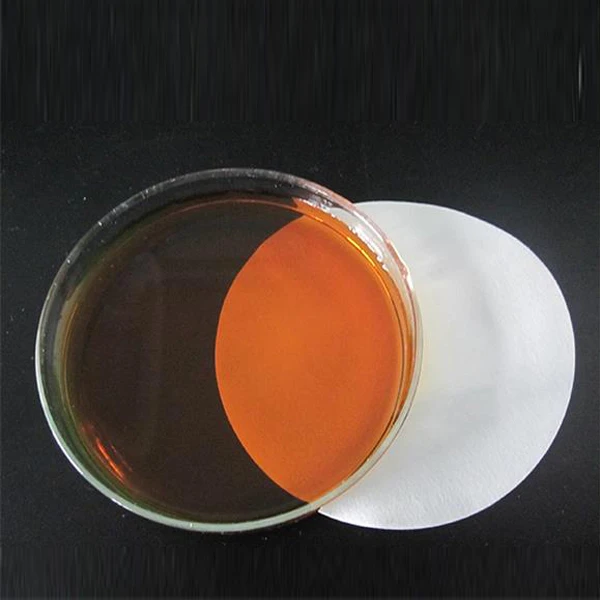
News
Каст . 21, 2024 12:16 Back to list
Superior Organic Humic Acid Fertilizer for Enhanced Soil Health and Plant Growth
The Importance of High-Quality Humic Acid Fertilizer
Humic acid, a crucial component of organic matter in soil, plays an essential role in enhancing soil health and plant growth. As a natural substance derived from the decomposition of organic matter, it boasts numerous benefits that make it an invaluable asset for farmers and gardeners seeking to improve crop yield and soil fertility. The increasing demand for sustainable agriculture has highlighted the significance of high-quality humic acid fertilizer, which offers a myriad of advantages over traditional fertilizers.
Understanding Humic Acid
Humic acid is a complex mix of organic compounds formed through the microbial degradation of plant and animal residues in soil. It is a key component of humus, which contributes significantly to soil structure, fertility, and overall health. Humic acid is characterized by its dark color, high molecular weight, and ability to bind with nutrients and minerals, making them more accessible to plants.
The humic acid molecules have a unique structure that allows them to interact with minerals and nutrients, enhancing their solubility and mobility in the soil. This interaction not only facilitates better nutrient uptake by plants but also minimizes nutrient leaching, ensuring that essential elements remain available for longer periods.
Benefits of High-Quality Humic Acid Fertilizer
1. Enhanced Nutrient Availability One of the primary benefits of high-quality humic acid fertilizer is its ability to improve nutrient availability. By chelating minerals and nutrients, humic acid helps in making essential elements like nitrogen, phosphorus, potassium, calcium, and magnesium more accessible to plants. This leads to healthier growth and improved crop yields.
2. Soil Structure Improvement Humic acid contributes to better soil structure by promoting the aggregation of soil particles. This aggregation increases aeration and drainage, reducing the risk of compaction and erosion. Improved soil structure enhances root penetration and water retention, providing plants with an optimal growing environment.
3. pH Regulation Humic acid helps to buffer soil pH levels, mitigating extreme acid or alkaline conditions. This regulation is crucial because most plants thrive in moderately acidic to neutral pH levels. By maintaining appropriate pH levels, humic acid ensures that nutrients remain in forms that are easily absorbed by plants.
high quality humic acid fertilizer

4. Microbial Activity Stimulation High-quality humic acid fertilizers can enhance microbial activity in the soil. A healthy population of soil microbes is essential for nutrient cycling, organic matter decomposition, and overall soil health. Humic acid serves as a food source for beneficial microbes, promoting a vibrant and healthy soil ecosystem.
5. Stress Resistance Plants treated with humic acid fertilizers exhibit increased resistance to environmental stresses such as drought, salinity, and extreme temperatures. Humic acid helps in enhancing the water-holding capacity of soil, allowing plants to access moisture even during dry periods.
6. Sustainable Agriculture The use of high-quality humic acid fertilizers aligns with sustainable agricultural practices. By relying on natural organic amendments, farmers can reduce dependence on synthetic fertilizers, which often lead to soil degradation and environmental pollution. Humic acid fertilizers not only enhance soil health but also contribute to the overall sustainability of agricultural systems.
Choosing the Right Humic Acid Fertilizer
When selecting a humic acid fertilizer, it is important to consider its purity and source. High-quality products are typically derived from lignite, leonardite, or composted organic matter. Organic certifications and lab-testing results can provide insights into the effectiveness and quality of the product.
Farmers and gardeners should also pay attention to application rates and methods, as these can influence the overall effectiveness of the humic acid fertilizer. Integrating humic acid into a balanced fertilization program can maximize its benefits and contribute to healthier soils and more productive crops.
Conclusion
High-quality humic acid fertilizer is a powerful tool in modern agriculture, offering numerous benefits that enhance soil health and plant growth. Its ability to improve nutrient availability, enhance soil structure, regulate pH, and stimulate microbial activity makes it an essential component of sustainable farming practices. As the agriculture sector continues to evolve, adopting high-quality humic acid fertilizers can lead to healthier crops and a more sustainable future. Investors, farmers, and agricultural enthusiasts should recognize the value of this natural resource and incorporate it into their cultivation practices for optimal results.
-
Polyaspartic Acid Salts in Agricultural Fertilizers: A Sustainable Solution
NewsJul.21,2025
-
OEM Chelating Agent Preservative Supplier & Manufacturer High-Quality Customized Solutions
NewsJul.08,2025
-
OEM Potassium Chelating Agent Manufacturer - Custom Potassium Oxalate & Citrate Solutions
NewsJul.08,2025
-
OEM Pentasodium DTPA Chelating Agent Supplier & Manufacturer High Purity & Cost-Effective Solutions
NewsJul.08,2025
-
High-Efficiency Chelated Trace Elements Fertilizer Bulk Supplier & Manufacturer Quotes
NewsJul.07,2025
-
High Quality K Formation for a Chelating Agent – Reliable Manufacturer & Supplier
NewsJul.07,2025
